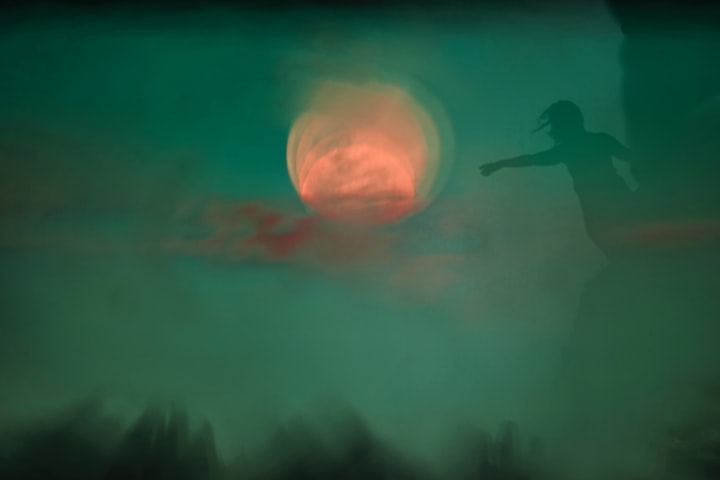"From Ancestral Legends to Modern Monsters: The Zombie's Fascinating Evolution"
"Unearth the Deep Roots and Twisted Transformation of a Horror Icon"
Intriguing tales of reanimated corpses have appeared in diverse cultures throughout recorded history. However, when it comes to zombies, their roots can be distinctly traced back to Equatorial and Central Africa. The very word "zombie" itself holds a mysterious etymological origin, with several potential sources. For instance, the Mitsogho people in Gabon use "ndzumbi" to refer to a corpse. In the Kikongo language, "nzambi" carries various meanings, including the supreme being, a superhuman ancestor, or another deity. Similarly, in certain dialects spoken in Angola and the Congo, "zumbi" signifies an object inhabited by a spirit or an individual returned from the afterlife.
What's more, these cultural beliefs intersect in intriguing ways. In Kongo tradition, there's a belief that a person's spirit can find refuge in a physical object, potentially offering protection and good fortune. Similar beliefs about the post-mortem destiny of one's soul are held across various African regions. Between 1517 and 1804, France and Spain enslaved hundreds of thousands of African individuals, transporting them to the Caribbean island that now comprises Haiti and the Dominican Republic.
Here, the religious beliefs of enslaved Africans intermingled with the Catholic customs of colonial rulers, giving rise to a religion known as "vodou." According to certain vodou beliefs, a person's soul can be ensnared and rendered soulless, akin to a "zombi." Alternatively, if a deceased body is not properly attended to, a sorcerer known as a "bokor" can seize the corpse and convert it into a mindless zombi, compelled to do their bidding. Historically, these zombis were said to labor tirelessly, requiring neither sustenance nor rest, thereby amassing wealth for their captors.
In essence, zombification symbolized the harrowing experiences of enslavement endured by many Haitian people. It was the ultimate horror, an enslavement so profound that not even death could provide an escape. The zombi was condemned to eternal servitude, deprived of an afterlife, and trapped in perpetual subjugation. Thus, in Haitian culture, zombis are often viewed as victims deserving of sympathy and care.
However, the concept of the zombie underwent a transformation following the commencement of the US occupation of Haiti in 1915. This shift was largely due to Western pop culture. During the occupation, numerous racist misconceptions about the Black Haitian population were disseminated by US citizens. Amongst these false narratives of devil worship and human sacrifice, zombie stories took root in the American imagination. The pivotal moment arrived in 1932 with the release of the film "White Zombie." Set in Haiti, the movie's protagonist embarks on a mission to rescue his fiancée from an evil vodou master who oversees a sugar mill operated by zombi labor. Notably, the film's primary object of sympathy is not the enslaved workforce but the victimized white woman.
In the subsequent decades, zombies made their way into numerous American films, often with loose connections to Haitian culture. Nevertheless, some films veered away, incorporating elements like aliens and Nazis. Then came the groundbreaking 1968 film "Night of the Living Dead," where a group of strangers struggles to survive an onslaught of slow-moving, flesh-devouring creatures. The director initially did not envision his undead creations as zombies; it was the audience that made the connection.
From that point onward, zombies became synonymous with an insatiable appetite for human flesh, with a particular predilection for brains, as popularized in the 1985 film "The Return of the Living Dead." In these and numerous subsequent films, zombies are no longer under the control of sorcerers; they are menacing monsters. In many iterations, fueled by the 2002 film "28 Days Later," zombification becomes a contagious phenomenon.
For decades, artists worldwide have harnessed the symbolism of zombies to shed light on contemporary social issues and anxieties, from consumerism to global disaster readiness. However, it's worth noting that American pop culture, in its initial embrace of the zombie mythos, obscured the creature's origins, appropriating and transforming the victim into the monster we recognize today.
About the Creator
Enjoyed the story? Support the Creator.
Subscribe for free to receive all their stories in your feed. You could also pledge your support or give them a one-off tip, letting them know you appreciate their work.







Comments (1)
This is incredibly interesting; as a horror lover I'm no stranger to Zombie flicks, but as a historian and folklore lover I had always wondered where this particular mythos originated. Considering I specialize in Northern European and Scandinavian history and folklore, however, it's no surprise that I never saw zombie's mentioned anywhere. You've done so well in laying all this out so that someone like me, with no actual background in the topic, can actually get the details clearly; thank you for sharing this, it's insightful and... kind of heart breaking considering the connections with the slave trade. I've subscribed to you, can't wait to see what you write next!